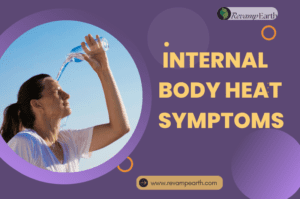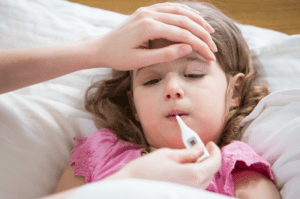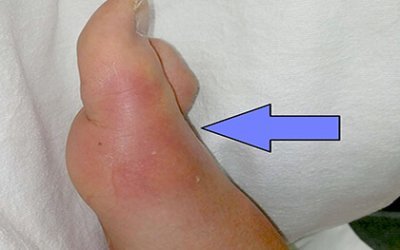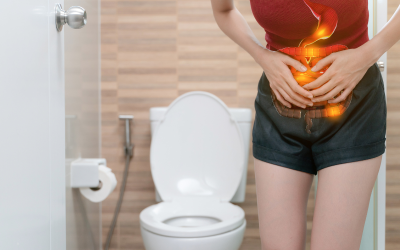How to Manage High Blood Pressure: Tips & Lifestyle Changes
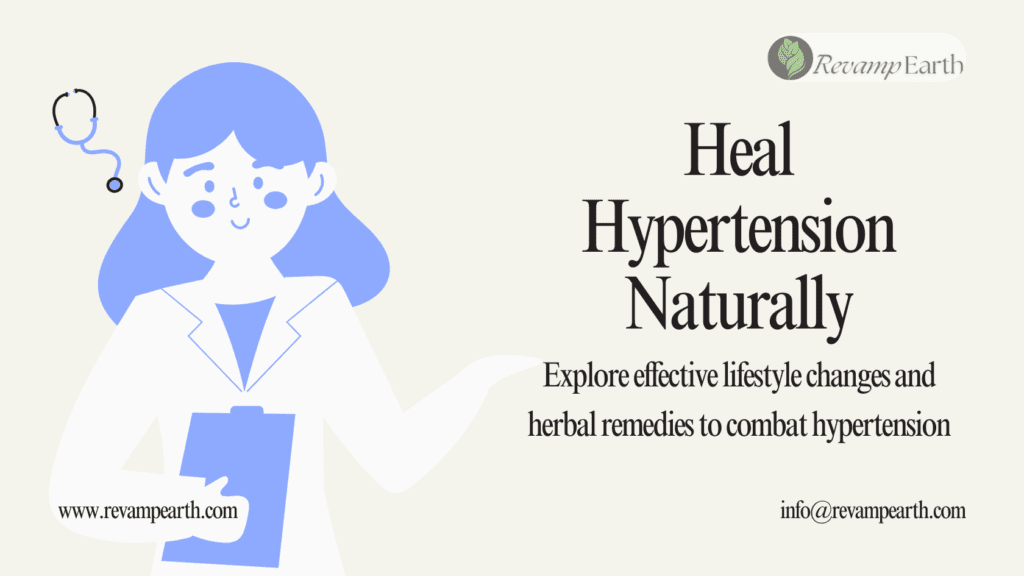
Hypertension, or high blood pressure, affects millions globally, often undetected until complications arise. This blog explores the intersection of lifestyle changes and herbal remedies as effective tools for managing hypertension. From heart-healthy diets to the potential benefits of herbs, we’ll uncover practical strategies to empower readers on their path to better blood pressure control.
Hypertension, often asymptomatic but with profound consequences, necessitates a multifaceted approach for effective control. We delve into the realm of lifestyle modifications, exploring the impact of dietary choices, exercise routines, and stress management on blood pressure regulation. Additionally, we unravel the potential of herbal remedies , offering insights into their natural blood pressure-lowering properties. Join us in understanding how personalized choices can create a lasting impact on overall well-being.
Complications of Hypertension:
Heart Disease: Hypertension can lead to coronary artery disease, heart failure, and an increased risk of heart attacks.
Stroke: Elevated blood pressure can damage blood vessels in the brain, increasing the risk of stroke.
Kidney Damage: Chronic hypertension can damage the kidneys over time, leading to kidney disease or failure.
Vision Loss: Hypertension can damage the blood vessels in the eyes, leading to vision impairment or blindness.
Aneurysms: Weakened blood vessels may develop bulges (aneurysms), particularly in the aorta, posing a risk of rupture.
Peripheral Artery Disease: Reduced blood flow to the limbs can result in pain and difficulties in walking.
Cognitive Decline: Chronic hypertension is associated with an increased risk of cognitive impairment and dementia.
Metabolic Syndrome: Hypertension is often part of a cluster of conditions, including high cholesterol, obesity, and insulin resistance, collectively known as metabolic syndrome.
Possible Causes of Hypertension:
Genetics: A family history of hypertension can increase the likelihood of developing high blood pressure.
Age: The risk of hypertension generally increases with age, as blood vessels tend to become less flexible.
Race and Ethnicity: Certain ethnic groups, such as African Americans, are at a higher risk of developing hypertension.
Gender: Men are often more prone to hypertension, but the risk equalizes in women after menopause.
Unhealthy Lifestyle Choices:
Diet: Consuming a diet high in salt, saturated fats, and cholesterol.
Physical Inactivity: Lack of regular exercise.
Smoking: Tobacco smoke can raise blood pressure and damage blood vessels.
Excess Weight or Obesity: Being overweight increases the workload on the heart and raises blood pressure.
Chronic Kidney Disease: Impaired kidney function can lead to an imbalance in fluid and salt regulation, contributing to hypertension.
Sleep Apnea: Obstructive sleep apnea, a condition where breathing stops and starts during sleep, is associated with hypertension.
High Stress Levels: Chronic stress can contribute to hypertension, although the direct link is complex. Know how to control stress.
Chronic Conditions:
Diabetes: High blood sugar levels can damage blood vessels over time.
Hyperthyroidism: Overactive thyroid gland can elevate blood pressure.
Certain Medications: Some medications, such as oral contraceptives, decongestants, and certain prescription drugs, can raise blood pressure.
Alcohol Consumption: Excessive alcohol intake can contribute to hypertension.

Management Strategies:
Lifestyle Modifications:
Dietary Changes: Adopt a heart-healthy diet rich in fruits, vegetables, whole grains, and low-fat dairy products. Reduce sodium intake by avoiding processed foods and using herbs and spices for flavor.
Weight Management: Achieve and maintain a healthy weight through a combination of balanced nutrition and regular physical activity.
Regular Exercise: Engage in at least 150 minutes of moderate-intensity aerobic exercise or 75 minutes of vigorous-intensity exercise per week. Include strength training exercises at least twice a week.
Limit Alcohol: If you choose to drink, do so in moderation. For most adults, this means up to one drink per day for women and up to two drinks per day for men.
Quit Smoking: Smoking raises blood pressure and damages blood vessels. Quitting smoking is a crucial step in hypertension management.
Medication:
Prescription Medications: Depending on the severity of hypertension, your healthcare provider may prescribe medications to help lower blood pressure.
Adherence to Medication: It’s essential to take prescribed medications consistently and as directed by your healthcare provider. Regular follow-up appointments are crucial to monitor the effectiveness and potential side effects of medications.
Regular Monitoring:
Home Blood Pressure Monitoring: Monitoring blood pressure at home can provide valuable information and help in the early detection of changes.
Regular Check-ups: Schedule regular check-ups with your healthcare provider to assess blood pressure, discuss medication adjustments, and address any concerns.
Relaxation Techniques: Practice stress-reducing techniques such as deep breathing, meditation, yoga, or tai chi to manage and reduce stress levels.
DASH Diet:
Dietary Approaches to Stop Hypertension (DASH): This diet emphasizes fruits, vegetables, whole grains, and lean proteins, and is specifically designed to help lower blood pressure.
Limit Caffeine Intake:
Moderate Caffeine Consumption: While the link between caffeine and hypertension is complex, limiting caffeine intake may be advisable for some individuals.
Exploring Herbal Remedies
Drumstick leaves & Carrot: Mix 1/2 cup of drumstick leaf juice with 1/2 cup of carrot juice and drink once daily.
Garlic: Garlic is one of the most effective remedies for lowering blood pressure. According to the University of Maryland Medical Center, the recommended dose of garlic in supplement form is 200 mg taken three times per day. You can also use fresh garlic as a health supplement by consuming 2 to 4 g of fresh, minced garlic per day.
It also slows the pulse and modifies the heart rhythm, relieving symptoms of dizziness, shortness of breath, and the formation of gas within the digestive tract.
Beetroot Juice:
Drinking a small glass (about 8 ounces) of beetroot juice daily can normalize blood pressure. Beetroot juice may have a nitrate content that could help dilate blood vessels.
Hibiscus Tea:
Drinking hibiscus tea 1-2 times a day can normalize blood pressure. Hibiscus may have a mild diuretic effect and can interact with some medications.
Aromatherapy:
Dosage: Use essential oils like lavender or bergamot in aromatherapy to promote relaxation. Aromatherapy may contribute to stress reduction.
Always remember that the effectiveness of herbal remedies can vary, and individual responses may differ. It’s crucial to consult with your healthcare provider before trying any herbal supplements, especially if you are taking medications or have pre-existing health conditions. Additionally, herbal remedies should be used as part of a comprehensive treatment plan that includes proper medical care, lifestyle modifications, and medication adherence.
References
Shikha Singh, Ravi Shankar, and Gyan Prakash Singh (2017) Prevalence and Associated Risk Factors of Hypertension: A Cross-Sectional Study in Urban Varanasi. National Library of Medicine. View
- H.K.Bakhru (1992) Herbs That Heal: Natural Remedies for Good Health. Orient Paperbacks. Delhi, India.
- T.V.Sairam (1999) Home Remedies Vol-II: A Handbook of Herbal Cures for Common Ailments. Penguin Books India.
Dos
Adopt a Heart-Healthy Diet:
Do: Embrace a diet rich in fruits, vegetables, whole grains, lean proteins, and low-fat dairy products.
Do: Choose foods low in sodium and limit processed and high-sodium foods.
Maintain a Healthy Weight:
Do: Strive for a healthy weight through a balanced diet and regular physical activity.
Engage in Regular Physical Activity:
Do: Aim for at least 150 minutes of moderate-intensity aerobic exercise or 75 minutes of vigorous-intensity exercise per week.
Do: Include strength training exercises at least twice a week.
Monitor Blood Pressure at Home:
Do: Regularly check blood pressure at home to track changes and report findings to your healthcare provider.
Practice Stress Management:
Do: Incorporate stress-reducing techniques such as deep breathing, meditation, yoga, or tai chi into your routine.
Limit Alcohol Consumption:
Do: If you choose to drink, do so in moderation (up to one drink per day for women and up to two drinks per day for men).
Quit Smoking:
Do: Quit smoking to reduce the risk of hypertension and cardiovascular diseases.
Don’ts
High-Sodium Diet:
Don’t: Consume excessive amounts of salt. Limit processed foods and choose low-sodium alternatives.
Sedentary Lifestyle:
Don’t: Lead a sedentary lifestyle. Regular physical activity is crucial for blood pressure management.
Ignoring Medication:
Don’t: Skip or alter prescribed medication without consulting your healthcare provider.
Excessive Alcohol Intake:
Don’t: Drink alcohol excessively, as it can raise blood pressure.
Stress Neglect:
Don’t: Ignore stress management. Chronic stress can contribute to hypertension.
Ignoring Weight Management:
Don’t: Neglect weight management. Excess weight can contribute to elevated blood pressure.
Ignoring Symptoms:
Don’t: Ignore symptoms like headaches, shortness of breath, or chest pain. Report any concerning signs to your healthcare provider.
Unhealthy Dietary Choices:
Don’t: Rely on a diet high in saturated fats, cholesterol, and processed foods.
Send Us A Message
FAQs
- Hypertension, also known as high blood pressure, is a chronic condition where the force of blood against the artery walls is consistently too high. It can lead to serious health problems such as heart disease, stroke, and kidney damage.
- Hypertension is often called a "silent killer" because it may not cause noticeable symptoms. However, some people may experience headaches, shortness of breath, nosebleeds, or dizziness when blood pressure is extremely high.
- Hypertension can be caused by various factors, including genetics, aging, and lifestyle factors such as poor diet (high in salt and low in potassium), lack of exercise, obesity, and excessive alcohol consumption. Other medical conditions such as diabetes and kidney disease can also contribute.
- Treatment for hypertension often involves lifestyle changes such as a healthy diet (e.g., DASH diet), regular exercise, weight loss, limiting alcohol, and reducing stress. Medications such as diuretics, ACE inhibitors, and beta-blockers may be prescribed to help manage blood pressure. Regular monitoring and check-ups with a healthcare provider are important for effective management.



